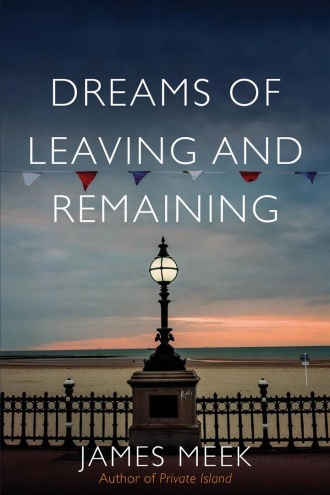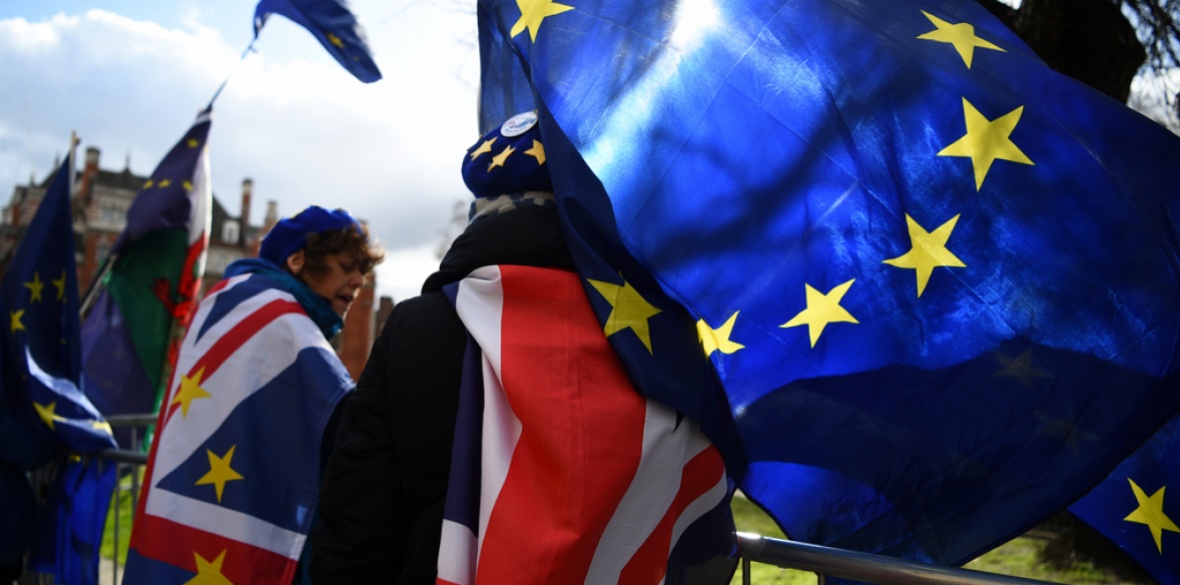This is the last article you can read this month
You can read more article this month
You can read more articles this month
Sorry your limit is up for this month
Reset on:
Please help support the Morning Star by subscribing here
Dreams of Leaving and Remaining
by James Meek
(Verso, £16.99)
DO WE need more books about Brexit? Will they be trampled into the mud in the stampede towards a glorious post-EU future, mere outdated ephemera from a previous epoch? As crunch time for Brexit approaches, one would be forgiven for questioning why one would take time out from following the events unfolding in real time.

The publication of James Meek’s Dreams of Leaving and Remaining during this most auspicious of months in Britain’s protracted conscious uncoupling from the EU does not seek to intervene in the debate but give welcome pause for reflection on the origins of this debacle.
In four chapters, Meek tackles the main canards of the EU that fuelled the campaign — fishing, farming, the NHS and employment — with each exploring a different corner of England. In focusing on Grimsby, Norfolk, Leicestershire and the West Country, he makes tacit the claim that Brexit is a particularly English problem.
By honing in on a particular place, Meek is able to go from the granular of EU policy to the molecular of voters’ lived experience through sensitive interviews, largely with leavers.
Along the way, he lucidly deconstructs some of the monolithic legislation that has frequently been monstered in the tabloid press like the Common Agricultural Policy and Common Fisheries Policy and parses their sometimes perverse market rationale.
In the chapter on the NHS in particular, besides harrowing accounts of how a service stretched to capacity is impacting on patient care, the layers upon layers of institutional bureaucracy created by marketisation become positively vertiginous, with sentences transformed into streams of acronyms.
Coupled with the impact of an ageing population — “immigrants from the past” in Meek’s sly rendering — the mendacity of the mainstream Leave campaign’s central message of an extra £350 million a week for the NHS is laid bare in all its transactional simplicity.
The reason Meek’s book will exist beyond its Brexit sell-by date is its panoramic angle, which rightly situates the current crisis as a national symptom of a global malady. The last chapter, chronicling the story of the Cadbury's factory closure in Somertown in favour of cheaper Polish labour, is a tale of the inequities of globalisation.
Following the factory to its new Polish base, Meek finds a country similarly riven with populist nationalism which scapegoats the EU.
What emerges from this though are more profound questions that transcend the nature of EU governance — how can multinational corporations be held accountable to the nations and communities they exploit?
And, as populations increase and more countries join the global labour market, how can wealth be distributed evenly across a world of diminishing resources?
These are the questions that are certainly not going to be settled by this current parliamentary brouhaha.










